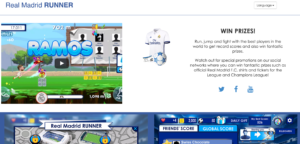The business of sports is characterized by a lot of old men on stage but it will be the young generations that will change the world of sports. The rise of new technological applications, data management and digitalization transforms the business models in sports due to adjustments in supply and demand and thus the consumption, distribution and creation patterns in sports. A changing playground changes the game on and off the playing field and the new generations of stakeholders and the understanding of the associated needs are essential for the direction of sports business development.
This changing landscape of sports shapes the interrelationship between stakeholder groups like sports organizations (incl. sports governing bodies), fans, sports stars, agents, strategic advisors (including lawyers), teams, media, and sponsors. Younger generations are more technology-savvy and hence adaptive to these changes than older generations. Therefore, the above-mentioned stakeholder groups should pay careful attention to adapting their business offerings to this development. Sports are to found under the umbrella of the experience economy. This distinct economic offering emphasizes that positive differentiation points driven by technological applications, data management and digitalization are vital to secure a strong foothold among younger fan generations. The technological, data or digitalization experience may be ‘the experience’ that to an even greater extent helps to differentiate the service and entertainment stimulated sports economy. This economy craves points of differentiation in the search and hunt for improved revenue generations in an industry with intensive competition and fewer essential differentiation points. Technological applications, data management and digitalization act as sources of magnetism for younger segments.
There are capitalist drifts in the business of sports, which are evident in different examples. One example has to do with the globalization impact from Asia and China concerning the growth of new market demand. This tendency is very visible in football (soccer) where there are many Chinese investments at the moment, e.g. in terms of attracting expensive top players to the Chinese league or via the ownership of clubs in European top leagues. With the growing interest for football (soccer) in Asia, there are still many unexploited opportunities in this market for the world’s best teams and for companies wishing to profit from Chinese football brands investing in improving their performance on and off the pitch. Capitalization is at the heart of the meaning related to applying technology, data and digitization to engage with younger audiences. Sports properties are transforming mediated content while emphasizing their status as marketable enterprises. Younger audiences equal interconnected and social consumers caring about authenticity and thus reflecting self-image through engaging, emotional and mindful consumption patterns. This scenario is mirrored when young sports fans consume sports data via their mobile devices and respected digital fan communities, e.g. ‘Broncos Country’ or when Madridistas engage in discussions on Facebook. Real Madrid motivated its Facebook fans to win two tickets for a match at the club’s Santiago Bernabeu Stadium. In doing so, the club applies a competition via the official Real Madrid RUNNER app in which Madridistas can run, jump and fight with Real Madrid’s star players in an entertaining game to win great prizes (e.g. shirts and La Liga and Champions League tickets).
Photos: Real Madrid motivating its fans via the official Real Madrid RUNNER app.
The Denver Broncos from the NFL has its own personal commitment to congratulate and reach out to parents of newborn babies. The celebration, see photo below, is a way to encourage parents (and Broncos fans) to raise their children as future Broncos fans by offering parents ‘an official Born in Broncos Country Certificate’. By doing so, parents have the chance to win a Miles (the official mascot of the Broncos) appearance and other prizes.
Photo: The NFL team Denver Broncos engaging with its youngest fans.
Such examples provide an opportunity to apply data, technology and digitization in a fan-generated way. For instance, fans can analyze and create unique individual content based on game statistics to be launched on a digital platform that will boost conversations among fans across international borders. The critical question that all sports properties try to answer is how to produce the most influential positive and shareable content. However, the first focus should be on the commodification of game data. Without an appropriate platform for this, many interesting and relevant commercial adventures will not take place! Take sports sponsorship as an example. It is no longer sufficient to attach a brand name to a venue or to a team shirt. The real value comes when there is a good strategic alliance between the sponsoring brand, the team/club and the avid fan in terms of profiting from the shared passion, knowledge, technology, data and digital interactions around the sports property. Still, emotional equity is vital to engage with younger generations of fans. Budweiser’s localized content regarding its activation of the FA Cup in the UK exemplifies this. The example portrays that technology, data management and digitalization may help boost the activation of this sponsorship but this marks a strategic alliance where the FA helps a corporate brand in the UK territory while allowing the sponsor to create some positive hype around the FA Cup product and brand, cf. video below.
The balance between emotional equity on one end and the application of technology, data management and digitalization on the other end is vital; this is especially true in an era where intellectual venues, BIG data and the request to improve the depth of interactions with fans influence the business of sports. These development patterns shape the managerial complexity in the business of sports for what reason sports properties and organizations applying sport as a promotional platform should stay tuned to find the right tools to deal with this complexity. The F1 product is emotional at heart and the fans are fascinated by the noise of the cars but at the same time the rational appeal of data and the many sensors in the F1 cars and the buttons on the steering wheel emphasize the DNA of a sport in which technology and data are huge elements. This example shows that the managerial complexity and the benefits depend on the specifics of the given sport in play.
Additional inspiration within this context:
Video below: What BIG data management means for the F1 product
Video below: Why Lionel Messi wears trackers in his shin pads



COMMENTS
No comments yet.